'No national development without cultural development'
Published: Tuesday | October 27, 2009
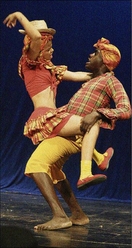
Denham Town High Students are in a 'Blissful Frolic' in 2008.
When Lester Lewis entered the National Gospel Contest in 1988, the born-again singer from Mount Prospect, Manchester, was largely unknown.
Life changed considerably for him after his song Everytime I Read My Bible won the second staging of the competition.
"That contest did everything for me and gospel music in Jamaica. Come to think of it, the JCDC really blow up gospel reggae in this country," Lewis told The Gleaner.
Lewis' career took off after his victory, performing throughout the Caribbean and rubbing shoulders with gospel elite, like American singer Ron Kenoly, who had a hit with Winner Man, one of his songs.
He is not the only Jamaican artiste who has benefited from appearing in events produced by the Jamaica Cultural Development Commission (JCDC), a government agency which is part of the ministry of youth, sport and culture.
Since 1963, when it was formed as the Jamaica Festival Committee, the organisation has overseen activities, starting in June and ending in August, to mark Jamaica's independence from Britain.
Among the JCDC 'graduates' are an august group. They include University of the West Indies professor emeritus and poet Mervyn Morris, painter Barrington Watson, musician Stephen 'Cat' Coore, and actress/broadcaster Fae Ellington.
On October 19, Morris was conferred with the Order of Merit, Jamaica's third-highest honour. Watson is recognised as one of Jamaica's eminent painters, while Coore, a founding member of progressive reggae group Third World, still records and tours with that unit. Ellington is still active in her fields.
The singers
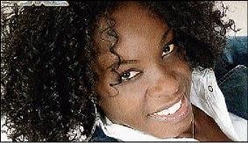
Glacia Robinson - Contributed
Then there are the singers, many of whom broke into the big time through the Festival Song Contest (later the Popular Song Contest). Some winners, like Desmond Dekker and Toots Hibbert, went on to international fame, while others, such as Eric Donaldson, Tinga Stewart and Stanley and the Turbines, have had fruitful careers.
In 1987, the JCDC expanded its base by tapping into the growing gospel market when it staged the inaugural gospel contest. It has helped push Christian performers, like Lewis and Glacia Robinson, into the mainstream and like its secular relative, has developed a die-hard following.
The JCDC has more than 100 workers who monitor cultural activities in the 14 parishes. Delroy Gordon is its acting executive director and has been with the organisation for 23 years. He started out as director of field services in his native St Mary in 1986, before being promoted to parish and regional manager for St Mary, Portland and St Thomas. His previous post was director of programmes.
He says the JCDC's mission is clear-cut.
"There can be no national development without cultural development. That's something that never escapes us. The fact that we have had so much success is heartening," he said.
Gordon says because the music events get the lion's share of attention, many persons know little of the JCDC's diverse calendar, which also includes competition in culinary, traditional folk forms, speech and dance.
"Media coverage is one of our greatest challenges. People think when Independence is over the JCDC stops working," Gordon said.
Inaccurate perception
That perception is inaccurate, as the JCDC year actually starts in September and ends 11 months later with Independence celebrations. Workers in each parish begin setting up seminars to train workers for the next year's events.
In the 'off season', the company organises weddings, funerals and State visits.
In January, preparations get into high gear when staffers begin vetting entries, followed by eliminations in the parish zones. The next phase is eliminations in the four regions, which determines the final cut for competition by June, when activities get into high gear.
Gordon believes the eliminations are the most exciting period of the selection process.
"It's where talent is unearthed, developed and exposed. It's really the most critical aspect of our programme," he said.
It takes a pretty sum to unearth, develop and expose this talent, more than $100 million according to Gordon. The bulk of these funds come from Government, with some contributions from private-sector companies.
In the past decade, the JCDC has made attempts to establish a catalogue.
For the first 33 years of the Festival Song Contest, music producers, like the prolific Leslie Kong, picked up the tab for songs of their artistes. In 1999, the JCDC assumed that function, underwriting the cost of songs in the National Gospel Contest as well. Since 1999, the commission have released compilation albums featuring songs that made the finals of both contests.
Jamaica was an exciting place to be in 1963. The previous year, the country gained independence from Britain, and the historic event was marked by islandwide celebrations.
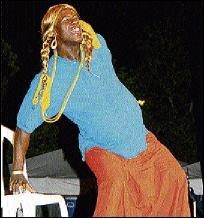
André Morris of the UTech Theatre Ensemble dramatises 'Belly Woman, Memoirs of a Slave Ship' at Speechfest at the JCDC National Festival of the Arts Concert Series in 2008. - Winston Sill/Freelance Photographer
One of the persons observing this outburst of nationalism was Manchester-born Hugh Nash, a community development officer who had worked with social clubs in the Clarendon sugar belt.
Within a year, Nash was in Kingston, handpicked by development minister Edward Seaga to lead the new Jamaica Festival Committee. He and his secretary were the only employees at the time, and his mandate was to produce Jamaica Festival, an extravaganza highlighting the country's culture and history.
Now in his late 70s, Nash is still with the organisation. He has worked with 12 government administrations, and seen the Jamaica Festival Committee evolve into the Jamaica Festival Commission in 1968, then into the Jamaica Cultural Development Commission in 1980.
Float parades
Throughout the 1960s, Nash helped produce Jamaica Festival events, which were usually highlighted by popular float parades. The various contests were an outlet for budding performers, like ska band the Skatalites, a young playwright named Trevor Rhone, and Seaga himself.
Rhone and Seaga were entrants in the early 1960s. Rhone, who died in September, entered a play called Smile Orange in the drama section, while Seaga's River Maid made the finals of the poetry category.
Nash has also watched the influx of cable television from North America transform the psyche of Jamaican youth, many of whom are hooked on hip hop and reality shows. They show little interest in the pastimes their parents embraced 40 years ago.
Nash is currently chairman of the JCDC. He told The Gleaner recently that reaching out to this dynamic demographic is, arguably, the agency's greatest challenge.
"Something I would like to see is the Jamaica National Heritage Trust (JNHT) working with our people at the parish level to ensure continuity of the movement," Nash said. "With the bombardment of cable TV, the society is changing, and we need to take our programmes to another level."
The JNHT is a government entity which, among other things, oversees the preservation of national landmarks and promotes the legacy of Jamaica's National Heroes.
Nash admits that interest in some Festival events has fallen off. The float parade, a popular attraction that first took place in 1962, went off the radar in 1997 before making a comeback last year.
Mediocre competitions
The Popular Song Contest, another jewel in the JCDC crown, has lost its lustre with a string of mediocre competitions.
Other JCDC staples have maintained their momentum. The Grand Gala, held in August, is one of them. Another is the folk forms, which include dance, speech and poetry.
Nash says entries for the latter remain high, especially among schools and groups in urban areas of Kingston and St Andrew. It is a resurgence not unnoticed by Rex Nettleford, founder of the National Dance Theatre Company (NDTC) and a strident advocate for preserving the arts.
Nettleford says the JCDC deserves credit for keeping folk traditions alive.
"In the old days, we were used to seeing only elderly people doing kumina and dinky mini, now it's in the schools and projected through the children," Nettleford said.
"It's good to see storytelling and children reciting (folklorist) Louise Bennett poems. It shows we have moved away from simple showcasing to a genuine attempt to maintain our heritage," he added.
The response to the Grand Gala and return of the float has made Hugh Nash just as optimistic. In recent years, the former has been held at the National Stadium. Featured performances covering the gamut of Jamaican culture, it consistently pulls a full house.
Last year, hundreds of persons lined the streets of Kingston to witness the float. The enthusiasm reminded old-timers of a simpler time in Jamaica and struck Nash that the contribution of the organisation he has been part of for nearly 50 years transcends song and dance. "We have sensitised Jamaican youth through the generations to the significance of Jamaican culture, but we have also shown the power of voluntary leadership and how it has consolidated our democracy," he said.
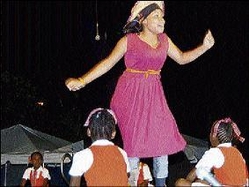
Sasha Belnavis tells the tots about Anancy and Fish Country at Speechfest, held at the Ranny Williams Entertainment Centre, Hope Road, on July 17, 2008. - Winston Sill/Freelance Photographer
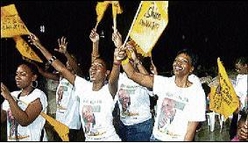
Supporters at the JCDC Festival Song competition 'What A Bam Bam', held at the National Indoor Sports Centre, Stadium Complex on Saturday, July 12, 2008. - Winston Sill/Freelance Photographer

Lester Lewis
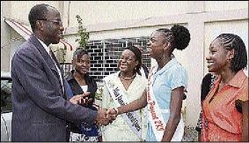
Delroy Gordon (left), acting executive director of the JCDC, greets Miss Teen Portmore 2009 Michelle Cole (second right), as Kamesha Turner (third right), Miss Jamaica Festival Queen, Anuska Gaynor (right), Miss Teen Portmore 2009 runner-up, and Miss Cole's first runner-up, Christene Marshall (background) look on.
- Anthony Minott/Freelance Photographer
